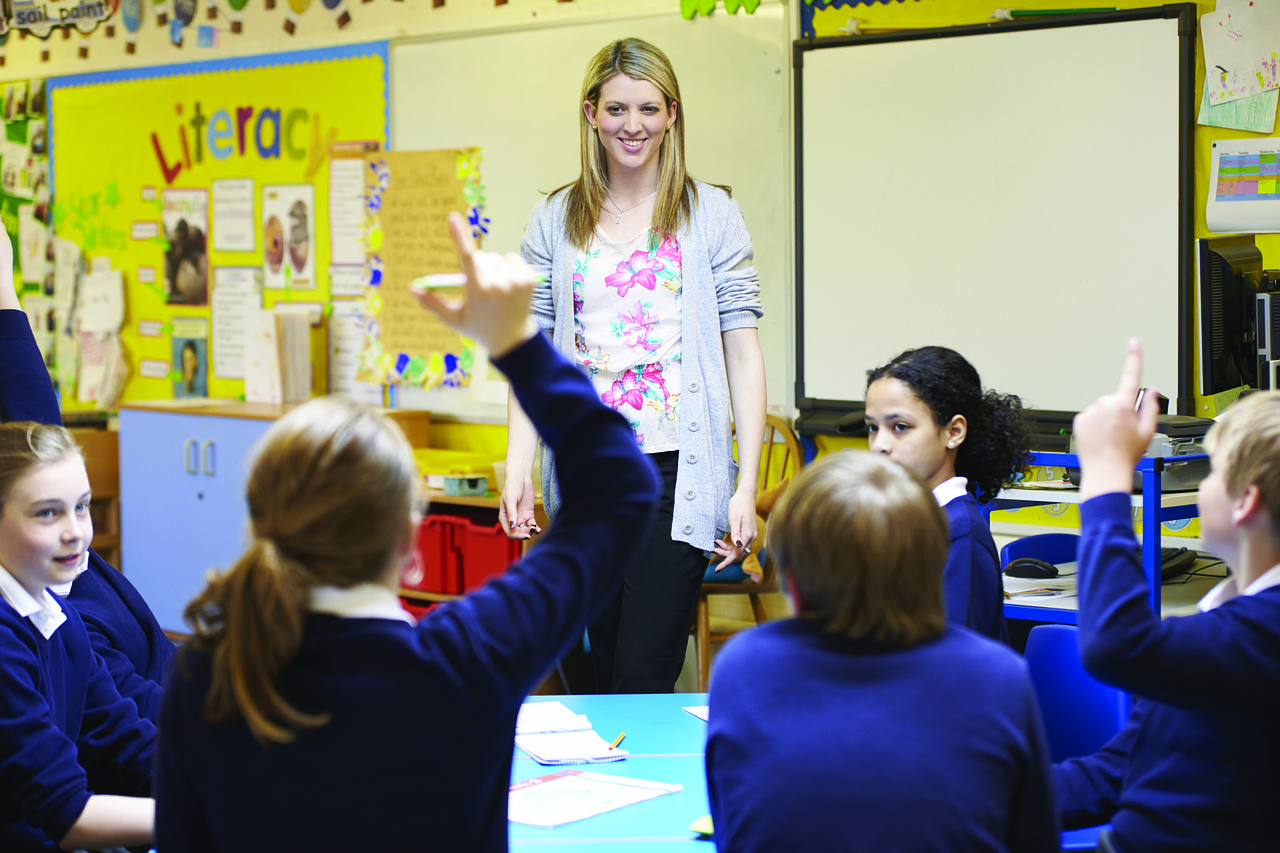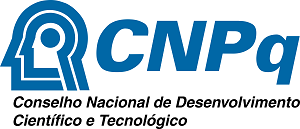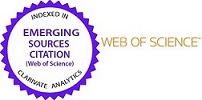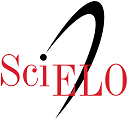Influência dos métodos de ensino individualizados na melhoria da flexibilidade profissional dos futuros professores do ensino primário
DOI:
https://doi.org/10.25053/redufor.v9.e12851Palavras-chave:
Nível educacional, Competência linguística, Competência interdisciplinar, Aplicações inovadoras, Pensamento criativo, Estabilidade emocionalResumo
O estudo tem como objetivo determinar a eficácia de métodos de ensino individualizados para o desenvolvimento da flexibilidade profissional de futuros professores do ensino primário. Os autores desenvolveram mecanismos de aprendizagem individualizados que proporcionam o desenvolvimento da competência linguística, bem como da competência matemática, interdisciplinar e inovadora. Determinou-se que o impacto mais significativo no desenvolvimento da flexibilidade profissional, na opinião de professores e alunos, foi feito pela competência linguística e interdisciplinar, o que contribuiu para a clareza de seus pensamentos. Os resultados do estudo mostraram o alcance de um alto nível de assimilação de informações por futuros professores após a formação (0,74). Verificou-se que os mecanismos de aprendizagem individualizados contribuíram para a formação da individualização do desenvolvimento (23%) e do pensamento criativo (22%) em primeiro lugar. O significado prático do trabalho é encontrar mecanismos eficazes para formar flexibilidade profissional para futuros professores do ensino fundamental.
Downloads
Referências
CALISKAN, O.; AKIN, S.; ENGIN-DEMIR, C. Democratic environment in higher education: The case of a Turkish public university. International Journal of Educational Development, [S.l.], v. 72, art. 102129. 2020. DOI: https://doi.org/10.1016/j.ijedudev.2019.102129 DOI: https://doi.org/10.1016/j.ijedudev.2019.102129
CHARTERIS, J.; SMARDON, D.; KEMMIS, S. Leadership in the built spaces of innovative learning environments: Leading change in people and practices in the perfectly self-managing society. Studies in Continuing Education, [S.l.], v. 44, n. 2, p. 212-231, 2022. DOI: https://doi.org/10.1080/0158037X.2021.1928051 DOI: https://doi.org/10.1080/0158037X.2021.1928051
HART-ANDERSON, L.; HOLME, R. Developing an understanding of coherent approaches between primary and secondary teachers: a case study within the design and technology curriculum in Scotland. International Journal of Technology and Design Education, [S.l.], v. 33, n. 5, p. 1727-1753, 2023. DOI: https://doi.org/10.1007/s10798-022-09795-6 DOI: https://doi.org/10.1007/s10798-022-09795-6
HARTNETT, M.; BROWN, C.; FORBES, D.; GEDERA, D.; DATT, A. Enhanced or diminished attitudes: University students’ agency. Computers and Education, [S.l.], v. 198, art. 104773, 2023. DOI: https://doi.org/10.1016/j.compedu.2023.104773 DOI: https://doi.org/10.1016/j.compedu.2023.104773
HEIRWEG, S.; DE SMUL, M.; MERCHIE, E.; DEVOS, G.; VAN KEER, H. The long road from teacher professional development to student improvement: A school-wide professionalization on self-regulated learning in primary education. Research Papers in Education, [S.l.], v. 37, n. 6, p. 929-953, 2022. DOI: https://doi.org/10.1080/02671522.2021.1905703
ILOMÄKI, L.; LAKKALA, M.; KALLUNKI, V.; MUNDY, D.; ROMERO, M.; ROMEU, T.; GOUSETI, A. Critical digital literacies at school level: A systematic review. Review of Education, [S.l.], v. 11, n. 3, art. e3425, 2023a. DOI: https://doi.org/10.1002/rev3.3425 DOI: https://doi.org/10.1002/rev3.3425
ILOMÄKI, L.; LAKKALA, M.; MUUKKONEN, H.; PAAVOLA, S.; TOOM, A. Investigating the characteristics of knowledge-related learning assignments in upper secondary school. Education Sciences, [S.l.], v. 13, n. 5, p. 471, 2023b. DOI: https://doi.org/10.3390/educsci13050471 DOI: https://doi.org/10.3390/educsci13050471
ISAC, M. M.; SASS, W.; PAUW, J. B.; VAN PETEGEM, P.; CLAES, E. Differences in teachers’ professional action competence in education for sustainable development: The importance of teacher co-learning. Sustainability, [S.l.], v. 14, n. 2, p. 767, 2022. DOI: https://doi.org/10.3390/su14020767 DOI: https://doi.org/10.3390/su14020767
JAVID, Z. S.; NAZEER, Z.; SEWANI, R.; LAGHARI, A. Effect of using mobile devices as an instructional tool on teachers' creativity: An interpretive phenomenological study of Pakistani teachers' experiences. Asian Association of Open Universities Journal, [S.l.], v. 18, n. 3, p. 292-305, 2023. DOI: https://doi.org/10.1108/AAOUJ-01-2023-0011
KOWALCZUK-WALĘDZIAK, M.; UNDERWOOD, J. M. International communities of practice: What makes them successful vehicles for teachers’ professional development? Educational Studies, [S.l.], v. 49, n. 6, p. 973-990, 2023. DOI: https://doi.org/10.1080/03055698.2021.1927673 DOI: https://doi.org/10.1080/03055698.2021.1927673
KUSHNIR, N. O.; VALKO, N. V. Methodical aspects of studying artificial intelligence by future teachers. CEUR Workshop Proceedings, [S.l.], v. 3553, p. 155-170, 2023.
LOPEZ, M. R. Active methodologies in elementary music teaching: Game-based learning with Boomwhackers. Educação & Formação, Fortaleza, v. 8, e11203, 2023. DOI: https://doi.org/10.25053/redufor.v8.e11203 DOI: https://doi.org/10.25053/redufor.v8.e11203
MARTÍNEZ-BORREGUERO, G.; NARANJO-CORREA, F. L.; MATEOS-NÚÑEZ, M. Cognitive and emotional development of STEM skills in primary School teacher training through practical work. Education Sciences, [S.l.], v. 12, n. 7, p. 470, 2022. DOI: https://doi.org/10.3390/educsci12070470 DOI: https://doi.org/10.3390/educsci12070470
MURATBEKOVA, D.; GALIYEVA, A.; KHANINA, N.; ZHEXEMBAYEVA, Z.; ASSYLOVA, R. Psychological and pedagogical preparation of the future teacher for the development of dialogical speech of primary school children. Research in Education, [S.l.], v. 114, n. 1, p. 64-78, 2022. DOI: https://doi.org/10.1177/00345237221140146
OSTROVSKA, M.; OSTROVSKI, O.; MARGITICH, K. Theoretical and methodological features of training future teachers for activities in an intercultural educational environment. Journal of Higher Education Theory and Practice, [S.l.], v. 23, n. 13, p. 45-54, 2023. DOI: https://doi.org/10.33423/jhetp.v23i20.6688
ÖZDEMIR, N.; KILINÇ, A. Ç.; POLATCAN, M.; TURAN, S.; BELLIBAŞ, M. Ş. Exploring teachers’ instructional practice profiles: Do distributed leadership and teacher collaboration make a difference?. Educational Administration Quarterly, [S.l.], v. 59, n. 2, p. 255-305, 2023. DOI: https://doi.org/10.1177/0013161X231159092
PALAMAR, S.; NEZHYVA, L.; BROVKO, K.; BODNENKO, D. Digital technologies as a means of forming subject-methodical competence future primary school teachers. Communications in Computer and Information Science, [S.l.], v. 1980, p. 336-347, 2023. DOI: https://doi.org/10.1007/978-3-031-48325-7_26 DOI: https://doi.org/10.1007/978-3-031-48325-7_26
POULTER, V.; COOK, T. Teaching music in the early years in schools in challenging circumstances: Developing student teacher competence and confidence through cycles of enactment. Educational Action Research, [S.l.], v. 30, n. 2, p. 192-208, 2022. DOI: https://doi.org/10.1080/09650792.2020.1765185
RODRIGUES, A. L.; CERDEIRA, L.; MACHADO-TAYLOR, M. L.; ALVES, H. Technological skills in higher education – different needs and different uses. Education Sciences, [S.l.], v. 11, n. 7, p. 326, 2021. DOI: https://doi.org/10.3390/educsci11070326 DOI: https://doi.org/10.3390/educsci11070326
SOTARDI, V. A.; BROGT, E. Supporting tertiary educators: insights from the covid-19 shift to online teaching and learning and the role of senior management. New Zealand Journal of Educational Studies, [S.l.], v. 58, n. 2, p. 417-439, 2023. DOI: https://doi.org/10.1007/s40841-023-00299-y DOI: https://doi.org/10.1007/s40841-023-00299-y
STRINGER, L. R.; LEE, K. M.; STURM, S.; GIACAMAN, N. A systematic review of primary school teachers’ experiences with digital technologies curricula. Education and Information Technologies, [S.l.], v. 27, n. 9, p. 12585-12607, 2022. DOI: https://doi.org/10.1007/s10639-022-11127-z DOI: https://doi.org/10.1007/s10639-022-11127-z
STRINGER, L. R.; LEE, K. M.; STURM, S.; GIACAMAN, N. A scoping review of research exploring teachers’ experiences with Digital Technologies curricula. Journal of Research on Technology in Education, [S.l.], 2023. DOI: https://doi.org/10.1080/15391523.2023.2211780 DOI: https://doi.org/10.1080/15391523.2023.2211780
TAHIR, F.; MITROVIC, A.; SOTARDI, V. Investigating the causal relationships between badges and learning outcomes in SQL-Tutor. Research and Practice in Technology Enhanced Learning, [S.l.], v. 17, n. 1, p. 7, 2022. DOI: https://doi.org/10.1186/s41039-022-00180-4 DOI: https://doi.org/10.1186/s41039-022-00180-4
THE NORWEGIAN National Committee for Research Ethics in Science and Technology. Guidelines for Research Ethics in Science and Technology, [S.l.], 2016. Available at: https://www.forskningsetikk.no/en/guidelines/science-and-technology/guidelines-for-research-ethics-in-science-and-technology/. Accessed on: Jan. 10, 2024.
TRASK, S.; CHARTERIS, J.; EDWARDS, F.; COWIE, B.; ANDERSON, J. Innovative learning environments and student orientation to learning: A kaleidoscopic framework. Learning Environments Research, [S.l.], v. 26, n. 3, p. 727-741, 2023. DOI: https://doi.org/10.1007/s10984-022-09449-3 DOI: https://doi.org/10.1007/s10984-022-09449-3
VALKO, N. V.; OSADCHYI, V. V. Teaching robotics to future teachers as part of education activities. Journal of Physics: Conference Series, [S.l.], v. 1946, n. 1, art. 012016, 2021. DOI: https://doi.org/10.1088/1742-6596/1946/1/012016 DOI: https://doi.org/10.1088/1742-6596/1946/1/012016
YUAN, R.; YANG, M.; STAPLETON, P. Enhancing undergraduates’ critical thinking through research engagement: A practitioner research approach. Thinking Skills and Creativity, [S.l.], v. 38, art. 100737, 2020. DOI: https://doi.org/10.1016/j.tsc.2020.100737 DOI: https://doi.org/10.1016/j.tsc.2020.100737
ZÁHOREC, J.; HAŠKOVÁ, A.; MUNK, M. Self-reflection of digital literacy of Primary and Secondary school teachers: Case study of Slovakia. European Journal of Contemporary Education, [S.l.], v. 10, n. 2, p. 496-508, 2021. DOI: https://doi.org/10.13187/ejced.2021.2.496 DOI: https://doi.org/10.13187/ejced.2021.2.496
ZHANG, W.-X.; HSU, Y.-S.; HO, Y.-T.; LIU, C.-C. Effects of a SSI-based learning module on students’ decision-making abilities. Journal of Research in Education Sciences, [S.l.], v. 68, n. 1, p. 67-198, 2023. DOI: https://doi.org/10.6209/JORIES.202303_68(1).0006
ZHELNOVACH, G.; BELOKON, K.; BARABASH, O.; DYCHKO, A. Airport runoff management: Engineering solutions. Ecological Engineering & Environmental Technology, [S.l.], v. 23, n. 1, p. 230-240, 2022. DOI: https://doi.org/10.12912/27197050/142970 DOI: https://doi.org/10.12912/27197050/142970

Downloads
Publicado
Como Citar
Edição
Seção
Licença
Copyright (c) 2024 Oksana Shkvyr, Nataliya Lupak, Liubov Kramarenko, Nataliia Kazakova, Inna Yashchuk

Este trabalho está licenciado sob uma licença Creative Commons Attribution 4.0 International License.
Os autores possuem direitos autorais dos seus textos:
A revista Educação & Formação permite ao autor os direitos de publicação, no entanto, recomenda um intervalo de dois anos para o caso de republicação.
Os nomes e endereços informados nesta revista serão usados exclusivamente para os serviços prestados por esta publicação, não sendo disponibilizados para outras finalidades ou a terceiros.






















